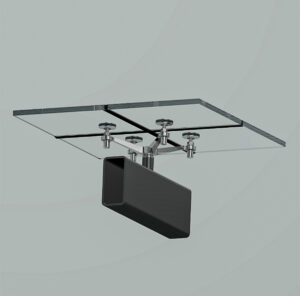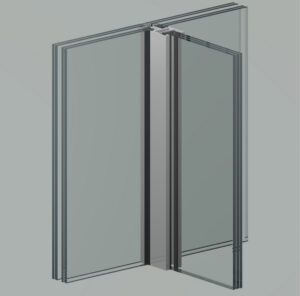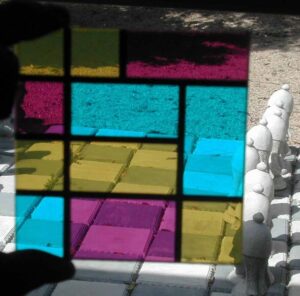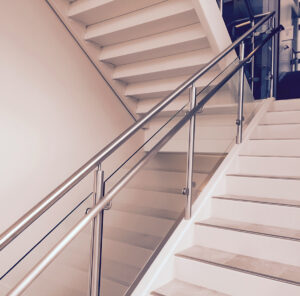
Table of Contents
Glass walls have become increasingly popular in modern architecture and interior design. They offer a sleek and sophisticated look, creating an open and airy atmosphere. However, the question of their safety often arises. In this article, we will explore the safety aspects of glass walls, addressing concerns and discussing measures to ensure their safety.
Glass walls, also known as curtain walls or glazed partitions, are transparent or translucent barriers made primarily of glass. They are used to divide spaces while allowing natural light to flow through, creating a sense of openness. Glass walls have gained popularity in commercial buildings, offices, and even residential spaces due to their aesthetic appeal and numerous benefits.
Glass Walls
Glass walls are architectural elements that use glass as the primary material for construction. They can be fixed or movable, depending on the design and purpose. These walls are often made of tempered or laminated glass, which enhances their strength and safety.
Growing Popularity
In recent years, glass walls have seen a surge in popularity. Their sleek and modern appearance adds a touch of elegance to any space. Moreover, glass walls offer several advantages, including improved natural light penetration, open sightlines, and the perception of increased space. These factors have contributed to their increased use in both commercial and residential settings.
Check out our high quality products here:
Importance Of Safety
While the aesthetic appeal of glass walls is undeniable, ensuring their safety is paramount. It is essential to address concerns related to glass strength, potential hazards, building codes, and safety measures to maintain a secure environment for occupants.
Safety Concerns
Glass strength and durability play a crucial role in determining the safety of glass walls. Here are some factors to consider:
Glass Strength And Durability
Glass used in walls is often reinforced to enhance its strength and prevent shattering. Tempered glass, for instance, undergoes a process of rapid heating and cooling, resulting in increased strength and resistance to impact. Laminated glass consists of multiple layers with an interlayer that holds the glass together even when it breaks, providing added safety.
Potential Hazards
While glass walls offer transparency and openness, there are potential hazards to be aware of. Accidental collisions or impacts can cause injuries. Additionally, if glass walls are not properly maintained or suffer from structural issues, they may pose a safety risk. Regular inspections and maintenance are necessary to prevent accidents.
Building Codes And Regulations
To ensure the safety of occupants, building codes and regulations often dictate the specifications and installation requirements for glass walls. These regulations include minimum glass thickness, safety glazing standards, and the use of safety stickers or markings to enhance visibility and prevent collisions.
Safety Measures And Precautions
To mitigate safety concerns, several measures and precautions can be implemented. These include adding visible markings on glass walls to make them more visible, incorporating safety film to increase durability, ensuring proper installation by certified professionals, and placing barriers or protective elements in high-traffic areas.
Contact Us For Unique Products And Services
Benefits
Glass walls offer various benefits beyond their aesthetic appeal. Let’s explore some of these advantages:
Natural Light And Aesthetics
One of the primary benefits of glass walls is their ability to maximize natural light penetration. This creates a bright and inviting atmosphere, reducing the need for artificial lighting and providing a connection to the outdoors. Glass walls also contribute to the overall aesthetics of a space, adding a modern and elegant touch.
Space Optimization
Glass walls can make small spaces appear larger and more open. By using transparent or translucent materials, they create a seamless flow between different areas, enhancing the perception of space. This feature is particularly useful in offices, where collaboration and communication are essential.
Improved Productivity And Well-being
The abundance of natural light provided by glass walls has been linked to increased productivity and improved well-being. Exposure to natural light has a positive impact on mood, energy levels, and overall satisfaction. By incorporating glass walls into workspaces, productivity can be enhanced, and employees can experience a more pleasant and comfortable environment.
Energy Efficiency
Glass walls can contribute to energy efficiency by reducing the reliance on artificial lighting during the day. Natural light penetration minimizes the need for excessive electrical lighting, resulting in energy savings. Additionally, the use of high-quality glazing materials and insulation can help regulate indoor temperatures, reducing the need for excessive heating or cooling.
Conclusion
Glass walls offer an elegant and modern solution to space division while allowing natural light to permeate the environment. However, ensuring their safety is of utmost importance. By considering glass strength, potential hazards, building codes, and implementing appropriate safety measures, the risks associated with glass walls can be minimized. Striking a balance between safety and design is essential to create secure and visually appealing spaces. visit Hals International for more articles.
Frequently Asked Questions
Yes, glass walls can withstand impacts if they are made from tempered or laminated glass. These types of glass are designed to be stronger and more resistant to breakage.
Glass walls made from tempered or laminated glass are less likely to shatter compared to regular glass. The reinforcement and interlayer in these glass types improve their strength and safety.
Yes, building codes and regulations often include specifications for glass walls, such as minimum thickness, safety glazing standards, and visibility requirements. Following these regulations ensures the safety of occupants.
To ensure safety, it is important to maintain and inspect glass walls regularly. Applying visible markings, using safety film, and installing barriers or protective elements in high-traffic areas can also help prevent accidents.
Glass walls can be soundproofed to some extent by using acoustic laminated glass or double-glazed glass with an air gap. These measures help reduce noise transmission while maintaining transparency.




